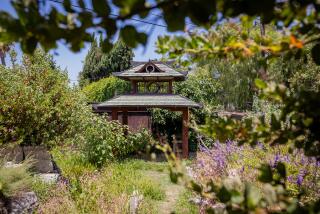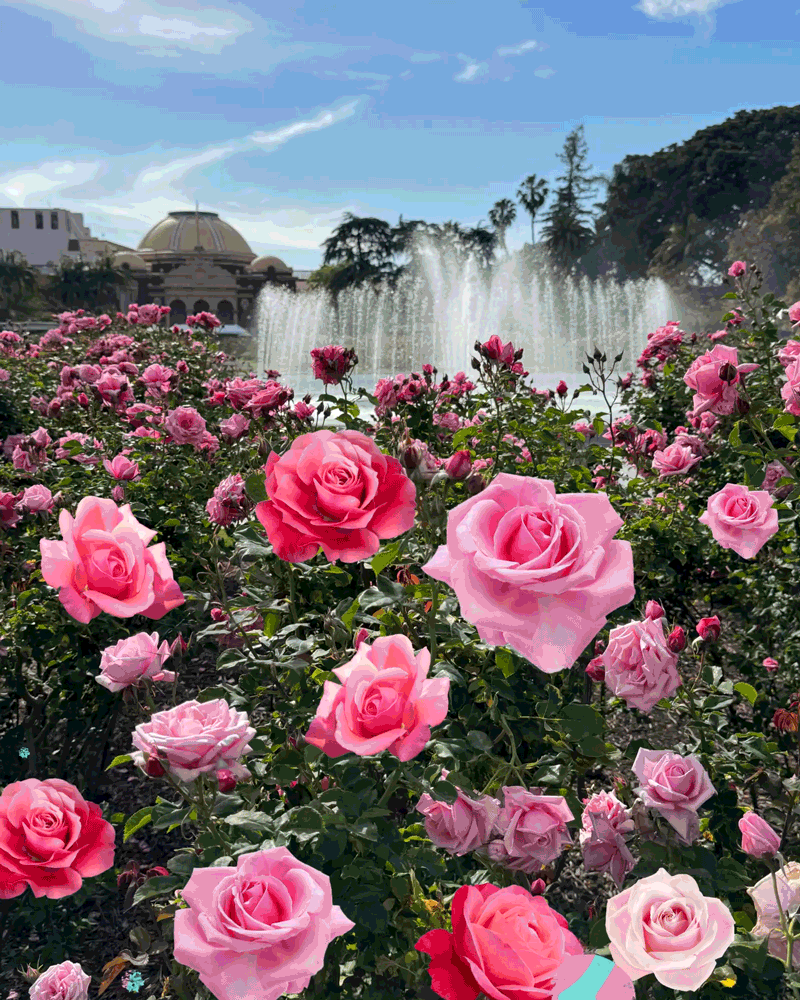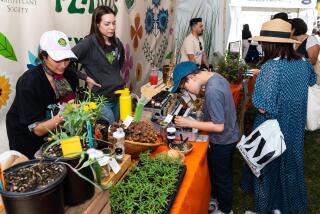Doctor popularized bromeliads
- Share via
Leonard Kent, a Los Angeles physician whose fascination with bromeliads led him to collect 40,000 of the tropical plants and establish a nursery that helped popularize them, has died. He was 90.
Kent died of pulmonary complications Dec. 28 at a rest home in the San Diego County community of Cardiff-by-the-Sea, his family said.
The all-or-nothing hobbyist created one of the largest bromeliad collections in the world, according to his family, after happening upon a plant with an iridescent pink flower spike at a local nursery in the 1960s.
When the nursery owner couldn’t even name it, the ever-curious Kent bought it anyway, and he was on his way to becoming an expert on the colorful bromeliad, which flourishes in tropical rain forests.
He enjoyed traveling to South America to hunt down new species, and within several years his collection had outgrown the 6-by-10-foot greenhouse at his Ladera Heights home. It had spread to his mother-in-law’s house in Westchester and to a shade house he built by the 405 Freeway. The passing cars only seemed to enhance the growth of the plants, which thrive in moving air.
In 1973, he bought seven acres in Vista in San Diego County with his eldest son, Jeffrey, and built a 10,000-square-foot greenhouse. It was the beginning of Kent’s Bromeliad Nursery, now one of the largest growers of bromeliads in the U.S. The nursery grows more than 100 varieties and sells millions of blooms a year, according to the Kents.
“My dad had the vision and the foresight to think of selling bromeliads. They were an exotic plant at the time,” said Larry Kent, his second son, who joined the business early on, selling plants out of the back of an old Dodge van.
Leonard had a hunch the plants might catch on because of their stunning colors, long-lasting flowers, infinite variety and ease of care, his sons said.
While Leonard continued to practice internal medicine in Los Angeles, his sons -- including his youngest, Michael -- stumbled into the wholesale business in a big way in the early 1980s after a greenhouse accident caused several thousand plants to bloom simultaneously.
“At the time, people were gun-shy to sell anything tropical, but we got a local supermarket chain to take them,” Larry Kent said.
That marked the beginning of their mass-marketing efforts, which helped popularize the plant in the U.S., said Don Misumi of the La Ballona Valley Bromeliad Society.
Kent was born Leonard Kneznekoff on March 6, 1918, in St. Louis. His father, Joe, opened a haberdashery -- Joe’s Clothes Shop -- in 1920 in St. Louis that remains in business.
When Kent was 13 his father died, and Kent ran the business with his mother, Fanny, and younger brother.
At Washington University in St. Louis, Kent earned a bachelor’s degree and, in 1939, a medical degree. In 1943, he joined the Army Medical Corps and served during World War II in Europe under Gen. George S. Patton in the 736th Tank Battalion.
During the postwar occupation of Czechoslovakia, Kent met his future wife, Irene. After marrying in 1948, they moved to St. Louis and, seeking to Americanize their last name, changed Kneznekoff to Kent.
A year later, they came to Los Angeles, and Kent spent about 30 years practicing medicine. He also taught clinical medicine at UCLA. At 65, he retired and built a home in Vista near the original nursery.
A garden at the San Diego Zoo, established decades ago with plants from the Kent family, was renamed the Leonard Kent Bromeliad Garden in 2000.
He was “generous and gregarious” said his son, Jeffrey, and enjoyed taking people out to dinner and arguing with them at the same time. “He was famous for that,” his son recalled. “He said it was good for the brain.”
Irene, his wife of 57 years, died in 2005.
In addition to his three sons, who continue to run the nursery, Kent is survived by his brother Kenneth and sister Terry of St. Louis; and six grandchildren -- Daniel, Lance, Gwendolyn, Lauren, Ashley and Avery -- who have bromeliads named after them.
--







